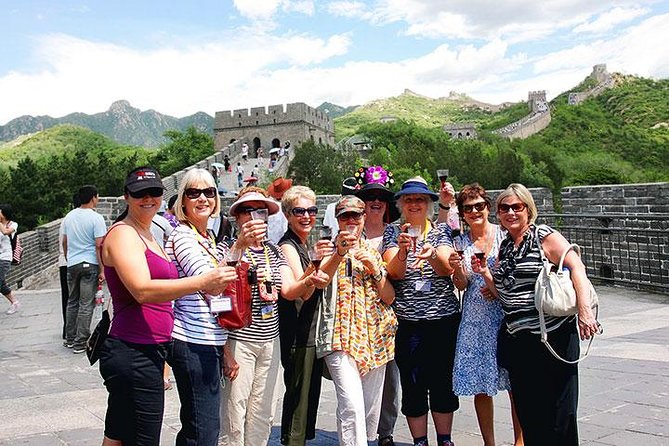20 Good Ideas To Discover the Tastes of China Cities
Wiki Article
Top 10 Shopping Tips In China's Market Streets
1. Get there early. Visit markets early in the morning while vendors are setting up. They may be able to offer lower prices to make their initial sale.
Pro: Shopping early allows for better bargaining and an increased selection of choices.
Pros: Mornings that are early may not be suitable for everyone.
2. Bring Cash
Cash is accepted for payment in most markets on the streets, though mobile payment options like WeChat Pay or Alipay have gained popularity in recent years.
Cash payments ease transactions and can be a powerful tool in negotiation.
Con: Carrying cash can increase the chance of theft and loss.
3. Learn Basic Mandarin
Tip: Knowing phrases like "Zhege duoshao Qian?" (How much is this?) In order to effectively communicate it is possible to use phrases such as "Zhege Duoshao Qian?" ("How much is it?") or even "Pianyi Yidian Ba" ("Can you reduce the price?) can aid in communicating effectively.
Pro: Develops rapport with local vendors, and displays respect for their customs.
Con: Limited vocabulary allows for miscommunication.
4. Make sure you inspect your items carefully
Examine for any flaws or irregularities, especially in clothing, electronics and handicrafts.
Pro: Ensures that you get what you paid for and helps avoid from disappointment in the future.
Con: Expensive and can cause annoyance to vendors.
5. Bargain Confidently
In many markets on the streets there is a tendency to haggle. Aim to cut the price by 50-70% in the beginning.
Bargaining can reduce costs significantly.
Cons: It can be intimidating for those who aren't familiar to the procedure.
6. Watch out for Counterfeits
Electronics, watches and bags that bear a brand name could be fake.
Pro: You will not be wasting money on cheaper imitations.
Genuine goods are difficult to find, and more expensive.
7. Respect Local Customs
Make use of the locals' shopping habits, negotiation, and interaction with vendors as a reference for your own strategy.
You can avoid cultural mistakes by blending in.
Con: Take time to fully understand the culture.
8. Keep Valuables Secure
Tip: Keep your phone and wallet in a bag or pocket of an anti-theft bag to avoid pickpockets at busy markets.
Reduces theft risks in areas with high traffic.
Cons: Extra precautions may make you feel uncomfortable or restrictive.
9. Before buying food, test it before purchasing.
Benefit from the fact that a majority of food stores will allow you to try snacks or dried goods prior to buying these items.
Pro tip: Make sure that you are satisfied with the taste and the freshness of the food you eat.
Con: Some vendors may make you buy by offering a free sample.
10. Know the market's focus
Tips: Each market is specialized in specific types of items like the Yuyuan Market (in Shanghai) for souvenirs, and Panjiayuan (in Beijing) for antiques. It's important to research beforehand in order to achieve your shopping objectives.
The time you'll save and the subject matter to what you are able to focus your attention is a huge advantage.
Cons The spontaneity and excitement of the game is restricted when you rely on your research.
Go to street markets for the benefits
Unique Finds You can discover unique items, such local snacks, or hand-crafted work which isn't sold in traditional stores.
Street markets have better prices than shopping malls and stores.
Cultural Experience: Engaging in discussions with vendors and exploring local markets is one way to be immersed into the culture of the place.
One market will have everything from food to clothing and even souvenirs.
The cons of shopping at market stalls on the streets
copyright Goods: High likelihood of encountering fake or low-quality items.
The crowds can be quite large, especially on holidays and weekends, markets can be very packed.
Pressure from Vendors: Some vendors might employ pushy sales tactics, making the experience overwhelming.
No Returns The majority of purchases are final, and there's no room for exchanges or refunds.
Use these guidelines to avoid common pitfalls when enjoying China's lively street markets. Check out the recommended visit this must-see attraction for site recommendations including xiang cuisine.html, shaoxing wine the best yellow wine in china, shopping in dunhuang, temple of confucius one of the three largest ancient architectural complexes, eating in urumqi, eating in taiyuan, south luogu laneone of the oldest neighborhoods in beijing, shopping in kashgar, eating in urumqi, honey lake country club and more.

Top 10 Tips To Ensure Cultural Respect When Visiting Famous Chinese Temples
1. Tip: Each Temple has specific rules, rituals, and etiquette. It is important to follow local customs.
Pro: Displays the highest level of respect for the temple and its religious practices.
Con: You could feel overwhelmed if unfamiliar about the practices of the temple as well as etiquette.
2. Dress sensually
Tip: Wear conservative clothing and cover shoulders, arms, and legs. Visitors who would like to cover themselves may be offered shawls and scarves by certain temples.
Pro: Avoids offending locals by showing respect and abstaining from the use of offensive language.
Con: During hot weather it may be uncomfortable and require extra clothing.
3. Relax and be calm
Tip: Maintain a quiet and calm manner, particularly in prayer rooms and sacred spaces. Do not engage in loud conversation, and speak quietly.
Pro: This preserves the sacredness, taking care to respect the worshipers and the space.
Con: Silence might be uncomfortable or unnatural in busy tourist areas.
4. Avoid Disrupting Worshippers
Tips: Avoid disturbing people who are in prayer, meditating, or doing other rituals. They should be able to finish their prayers or meditation.
Pro: Shows consideration for the spiritual practices of others.
Cons: You may be in the presence of worshipers and be enticed to talk with them but you should stay clear of distractions.
5. Do not Touch Sacred Objects
Do not touch statues and sacred items except when specific permission is given. These objects are considered to be sacred.
Pro: Respects and preserves cultural practices while maintaining the holiness of temples.
Cons: You may be tempted by objects in order to snap photos or out of curiosity.
6. The Elders are worthy of respect.
Tip: In most temples, elders are respected. If interacting with them, behave with respect and politeness.
Pro: Respecting elders is an important cultural value that should be cherished.
Cons: You may find it strange in a culture that doesn't value respect based on one's age.
7. Follow the locals' instructions.
Tip: Watch the way people behave in local communities to learn how to behave like how they make offerings and where to go.
You can blend into the crowd and adhere to proper procedures.
Con: Might require a bit of observation time to fully understand the methods.
8. Request Permission to Take Pictures
Always ask for permission before making photos, especially if you are in a location where people may be praying or photography is not permitted. Some temples may prohibit photography entirely.
Pros: Respects privacy of individuals and reverence for the sacredness of the area.
Con: Can result in miss opportunities to capture photos, especially when in stunning places.
9. Respect and be humble in your service
You can offer flowers, fruits, incense and other things that are simple. Avoid extravagant gifts unless specifically needed for special occasions.
Pro: It is in line with the local culture and prevents an impression of discord or discord.
Cons: If you don't have local advice You may be uncertain about the best offerings.
10. Be aware of your behavior and your Language
TIP: At all times keep a calm and calm manner. Beware of the use of inappropriate language in sacred places.
Pro: It helps create a calm and peaceful environment for all worshippers and visitors.
Con: Although a laidback or humorous attitude may be instinctive, maintaining composure and poise is crucial.
Chinese temples: Pros and Pros and
You can establish a positive relationship with the people of the area if you treat them with respect for their culture.
A deeper understanding of culture: demonstrates a desire to understand and fully immerse yourself in Chinese practices.
A Memorable Experience: Engaging in a respectful manner with the temple's culture can be an enriching and memorable experience.
Beware of mistakes By adhering to traditional values, you'll be careful not to disrespect sacred sites or people. It will allow you to have an enjoyable experience during your visit.
Greater Spiritual Sensitivity: Engaging in respect can help open your eyes to spiritual practices and traditions of the region and provide a greater feeling of being connected.
Cons of Cultural Respect at Chinese Temples
Cultural Misunderstandings: If you don't have an understanding of the culture, you could commit mistakes or misunderstand the rules of temple behavior. This could cause discomfort.
Physical discomfort: Dressing modestly in hot temperatures or adhering to certain rules can lead to temporary discomfort.
Restricted Freedom: You might feel constrained by the strict rules that govern your visit to the temple.
Time-Consuming: Observing rituals and learning temple customs may take more time that could alter your overall schedule of sightseeing.
Language Barriers may be difficult to get permission or understand certain rituals when a language barrier is in place.
It is not just about having the most satisfying and fulfilling visit to China's temples when you follow these suggestions, but you will also aid in the preservation of the ancient traditions and the sacredness of these spots. Follow the recommended visit this must-see attraction for more info including xi an travel tips, chinese wood carving originated in neolithic period, tips for identifying copyright, eating in shangri la, eating in dunhuang, kweichow moutai the best and most famous liquor in china, litchi park, eating in lanzhou, chinese festival cuisine, wang zhaojun one of the four beauties in ancient china and more.
